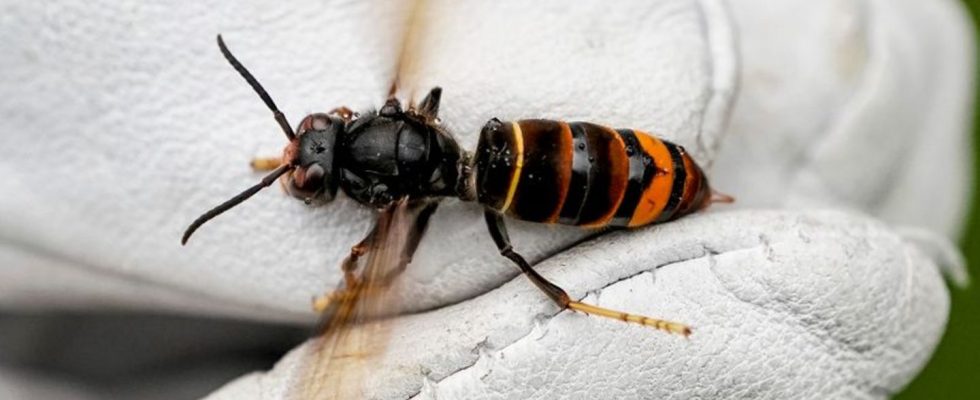natural reserve
Report on threats from alien species
An Asian hornet (Vespa velutina nigrithorax). photo
© Axel Heimken/dpa
The Asian hornet and the Pacific oyster did not originally exist in Germany. But now they have settled in and are threatening other species. There are similar problems worldwide.
Invasive species in Germany are, for example, the Asian hornet, which lurks on beehives for prey, and the Pacific oyster, which overgrows mussel beds in the North Sea.
The preparation of the IPBES report reportedly took four years. 86 experts from 49 countries worked on it.
The Bonn-based international scientific body for biodiversity and ecosystems (IPBES/Intergovernmental Science-Policy Platform on Biodiversity and Ecosystem Services) is intended to provide independent information on the global state of nature. It is thus a counterpart to the Intergovernmental Panel on Climate Change (IPCC). Numerous animal and plant species are classified as severely endangered or already extinct worldwide.

